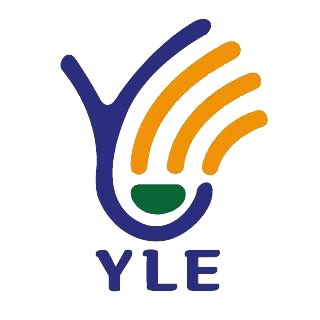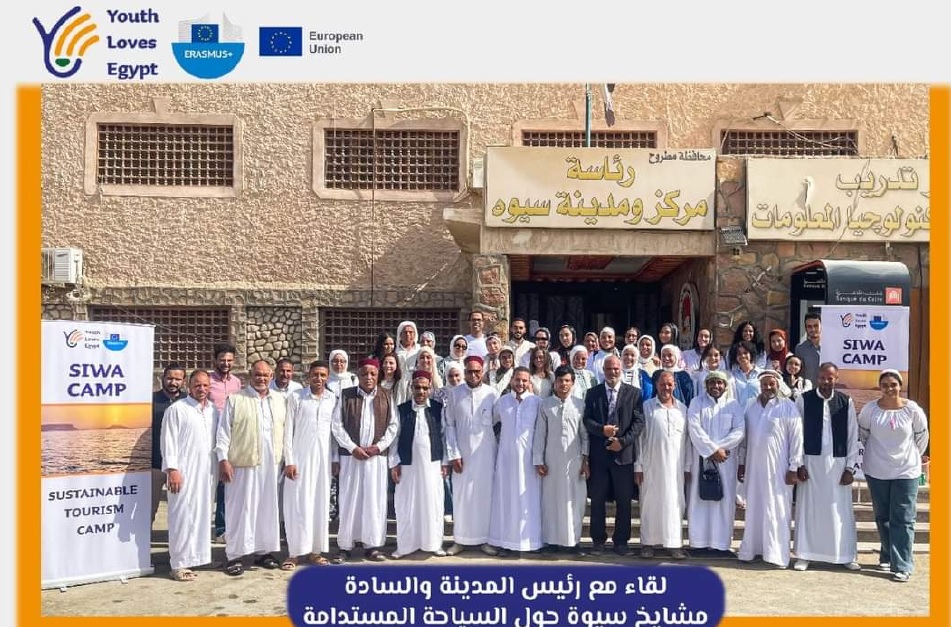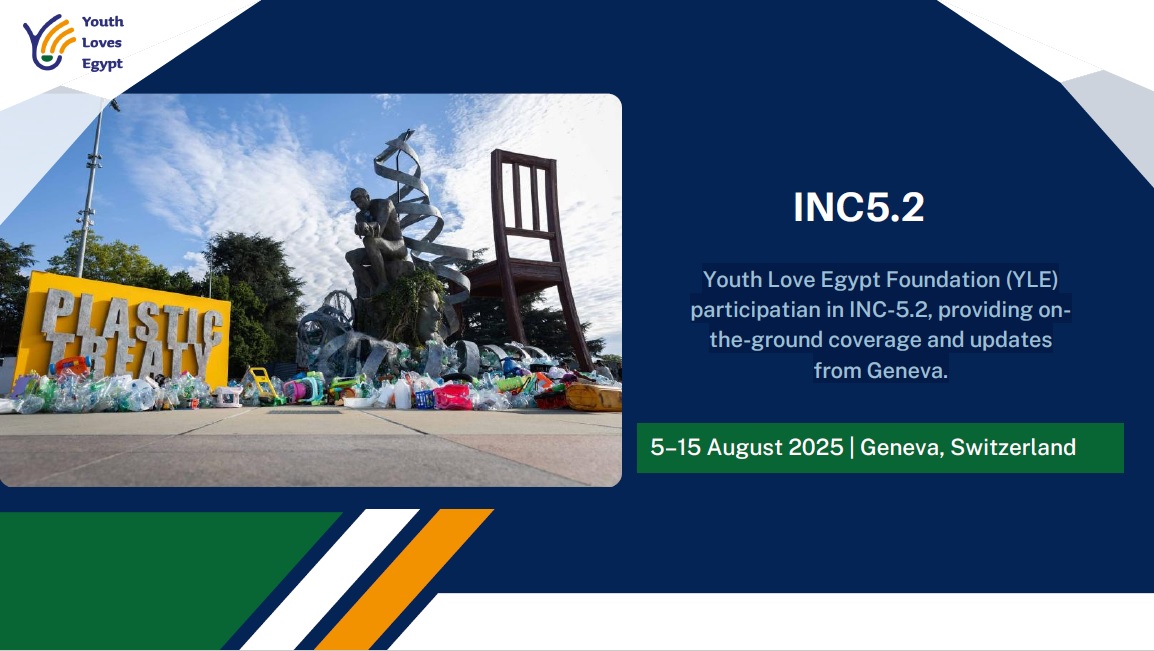SUMMARY
The Youth Love Egypt Foundation organized the Siwa Oasis camp as part of a project on sustainable tourism in cooperation with 5 countries and funded by Erasmus, which is jointly implemented by the Circle Institute from Slovenia, the Youth Love Egypt Foundation, the Awladna Association and the Civil Society Development Association from Tunisia, and the Development Work from Lebanon. In which it sought to implement projects aimed at developing the local community, enhancing environmental awareness, and providing support to the people of the region by educating children and providing the necessary medical care. This project began in Turkey in May 2024, and the Foundation participated in it, and it will end in Tunisia in September of the same year.
The Foundation's work team organized a program for the camp that included all its objectives; The camp participants met with the head of Siwa Center and Siwa sheikhs to discuss the problems facing the oasis to reach what the foundation can offer them. The discussions took place between the Siwa sheikhs and the foundation team about the problems facing the agriculture and irrigation sector, the salinity of wells and the need to drill more of them, and energy problems. The mechanisms for achieving sustainability in the tourism sector were also discussed, as Siwa depends mainly on tourism, as it has all types of medical, environmental and archaeological tourism. In addition to this meeting, the Foundation also organized a training to raise awareness among young people about sustainable tourism and enhance their job opportunities in this sector.
It was attended by all the participants in the camp, who were 33 participants with diverse scientific and practical backgrounds. A workshop was organized for the children of Siwa to raise their awareness about climate change, water problems, and to conduct activities with them about recycling plastic and about Siwa heritage. They drew their own vision of their environment, and the Foundation will collect it and send it to a professional artist to design a book with the child’s drawing and the artist’s drawing and send it back to them.
In addition, a group of environmental engineers in the Foundation will conduct scientific visits to the wells and farms areas that suffer from problems so that they are aware of the reality of the problems, which will help them when proposing solutions. The workshop was attended by 33 people from inside and outside the organization, from 13 governorates, with diverse scientific and practical backgrounds, with the aim of achieving the maximum benefit from the camp on sustainable tourism and on the Siwa Oasis, whether by reaching solutions to the problems it faces, or supporting it by highlighting the authenticity of the Siwa heritage by documenting the shrines and archaeological sites there, and educating the youth and children in the oasis about the current problems it faces.
Participants
- Reham Abbas
- Nancy Nagih
- Alia Eid
- Farag Ahmed
- Mohamed Ayman
- Abdel Rahman
- Basel Abdel
- Rawda Abu
- Maryam Tarek
- Ayad Al-Anani
- AI-Shimaa Mahmoud
- Alia Eid
- Basel Abdel Mohsen
- Zeina Magdy
- Asmaa Al-Shafei
- Zeina Magdy
- Asmaa Al-Shafei
- Aya Mohamed
- Kenzy Mohamed
- Farouk Zidane
- Sama Sami
- Abrar Nasser
- Arwa Nasser
- Nancy Nagih
- Abdel Rahman Ahmed
- Reham Abbas
- Nouran Hassan
- Yara Abdullah
- Shaimaa Youssef
- Iman Khaled
- Sara Jomaa
- Nasiba Walid
- Mohamed Ayman
- Hadeer Ahmed
- Hadeer Al-Saeed
.jpg)
.jpg)
Training Objectives
- Building the capacity of a group of youth and children by educating youth about sustainable tourism, its mechanisms and the problems it faces, and educating children about climate change and its effects on the ecosystem and the water cycle.
- Developing the local community and providing support to the people of Siwa by identifying the problems they suffer from and the possibility of contributing to proposing solutions for them.
- Trying to suggest solutions to achieve sustainability in the field of tourism in Siwa, which is characterized by a special nature.
- Providing support to the Siwa community by highlighting and promoting various landmarks through social media.
First-day
The camp program was prepared in cooperation with the Public Relations Department in Siwa City Center. It was busy with visits to famous and unknown tourist attractions in Siwa, implementing workshops for youth and children, and arranging a meeting with Siwa sheikhs. The first day of the Siwa Oasis Sustainable Tourism Awareness Project camp began with a visit to the Temple of Amun (Temple of Prophecies or the Oracle of Amun) and a visit to the priests' chambers and the coronation hall of Alexander the Great. Then, they went to Cleopatra's Spring (Juba Spring), which is considered one of the most famous water springs in Siwa Oasis. At the end of the day, the participants went to Camp Breeze to watch the sunset and then returned to the hotel again.
.jpg)
Second- Day
The second day of the camp began with a visit to the Mountain of the Dead, which is about 3,000 cave-shaped tombs in the mountain discovered by the people of Siwa when they fled the fires of World War II. It contained mummies from various ancient Egyptian civilizations. One of the most famous tombs in the Mountain of the Dead is the tomb of "Si Amun". On the ceiling of this tomb there is an engraving of the goddess "Nut", the god of the sky for the ancient Egyptians. The drawing depicts her as if she is "pregnant". The reason for this is that the ancient Egyptians believed that Nut swallows the sun at sunset, keeps it in her womb, and then gives birth to the sun every day at sunrise. Next to Nut on the ceiling there are drawings of stars and sun boats. After that, the participants visited the Siwa House model in the Egyptian Public Library to learn about what life was like inside the Siwa House in the past and what continues from it until now, what is the official dress for women and men on different occasions, and the tools and accessories that the people of Siwa have used over time.
Then a workshop was held for the children of the oasis in one of the halls of the Egyptian Public Library about climate change and the water cycle.
In addition to visiting the ancient Shali Castle (or Shali Fort), which is considered one of the most famous tourist attractions in the Siwa Oasis, after that the participants went to Fatnas Island, which is distinguished by its picturesque view at sunset to watch it, then go to one of the sulfur springs.
.jpg)
Workshop for children on climate change and the water cycle
- The workshop was held at the Siwa Public Library of Egypt, attended by 50 children from Siwa, aged between 8 and 16. The aim of the visit was to introduce the children to the effects of climate change on the ecosystem and the problems it currently poses in their environment, the most important of which is the water problem.
- Many activities were carried out with the children during the workshop, including the plastic bottle recycling activity, in which the children showed their creativity, in addition to activities related to the water cycle to confirm their understanding of it.
- Finally, each child drew his vision of the environment around him. These drawings were collected and sent to a professional artist to draw them professionally, compile them into a book and send them back to the children in Siwa.
Sustainable tourism training 23 August 2024
Similar to the second day, the third day was also full of activities, as a Training about sustainable tourism was held for the youth participating in the camp, a visit to the salt lakes and a visit to Taghaghin Island.
The Foundation organized this Training to raise awareness among the youth about sustainable tourism and responsible tourism, and to enhance their job opportunities in this sector. All the participants in the camp attended, as the main difference between the two is that.
Sustainable tourism requires companies and organizations to take responsibility for their actions and their impact on the environment.
Responsible tourism involves individuals in this process and holds them responsible for their choices and their impact on the environment.
.jpg)
Third-Day
After the training, the participants visited the salt lakes, which are considered one of the main destinations for medical tourism in Egypt, as they cure skin diseases and remove negative energy from the body, making them one of the most important destinations for tourists when they come to Siwa. At the end of the day, the participants also went to Taghaghin Island, which is considered one of the best places for relaxation and tranquility, as it is considered an isolated island on Lake Siwa.
.jpg)
Fourth -Day
Roundtable on Sustainable Tourism 24 August 2024
The fourth day is considered the most important day of the camp, as a Roundtable on Sustainable Tourism was organized between the sheikhs of Siwa, the mayor of the city, and the youth participating in the camp to discuss the problems that the youth noticed. The sheikhs presented the problems facing the oasis, including problems due to the increased salinity of agricultural lands, the need to dig more wells, as many of them have been closed due to the increased salinity, and energy problems and the need to produce more energy using more sustainable methods.
The meeting was opened by Mr. Mohamed Bakr Youssef, head of Siwa Center and City, by thanking the Youth Love Egypt Foundation and its team for implementing this program in Siwa City. He expressed his confidence in the youth of the foundation to convey a positive image of Siwa to Egypt and the world, which will benefit it.
Roundtable on Sustainable Tourism 24 August 2024
Then the conversation moved to Mr. Ahmed Fathy, founder and executive director of the Youth Love Egypt Foundation, to thank the sheikhs of Siwa for this meeting and to emphasize that choosing Siwa Oasis to implement the project program to raise awareness about sustainable tourism is the best choice, as it is a city with a special nature, and at the same time it has all types of tourism, so it is the clearest example when talking about implementing sustainable and responsible tourism.
Then Sheikh Omar Rajih began his speech by emphasizing that what unites the sheikhs of Siwa and the youth of the institution is nothing but the love of Egypt.
He stressed his confidence that the youth of the Foundation are able to show how rich Siwa is in tourist attractions and heritage.
He also stressed how Siwa welcomes tourists from different cultures of the world, with the need to preserve its identity, which it has been able to preserve throughout this period, and the geographical distance helped it in this.
The conversation then moved to the Foundation's work team to talk about the most prominent problems it noticed to discuss them with the sheikhs of Siwa to reach sustainable solutions for them. These include the challenges facing the agriculture and irrigation sector, and the need to dig more wells, as many wells were closed during the previous period due to their unsuitability or dryness. Sheikh Hamza Mansour participated in this discussion, and he explained in detail the need to confront these challenges with actual work and not just suggestions.
In addition to listening to the opinions of the youth participating in the camp about the most important thing that caught their attention in Siwa, which highlighted many issues when talking about Siwa. Some of them focused on children and the need to focus on building their capabilities to preserve the cultural heritage in Siwa and preserve its identity through an aware generation. Some of them focused on the mechanisms for producing more clean energy, some of them focused on the medical sector and the need to pay attention to it, and some of them had a vision that was directed towards the sports sector and the need to pay attention to it, especially in the presence of young people and children with a high level of physical fitness.
The Foundation team also stressed its admiration for the material and cultural heritage in Siwa and that it seeks to convey this image to Egypt in particular and to the world in general through the sustainable tourism program that will be held in Tunisia, as Siwa, with its distinctive nature, needs to be shown to
the world as it is a clear example of sustainable tourism.
But before the Foundation's youth met with the sheikhs of Siwa, they visited the Adrère Amellal Hotel (or what is known as the Jaafar Village Hotel), which is one of the models of building and treating the desert environment to make it a center for tourism without compromising the nature of the place. The entire hotel relies on natural components, whether in its building materials or energy, in addition to its special design that makes it suitable for the desert environment as it is surrounded by the White Mountain and Lake Siwa. After finishing the meeting with the sheikhs of Siwa, the team prepared for one of the most enjoyable trips held in Siwa, which is the safari trip in the Great Sand Sea.
.jpg)
Fifth - Day
The fifth day was not as full of activities as the other days, but it witnessed one of the most important activities in the camp, as a team of engineers from the institution went to see the agricultural sites and well sites to study the problems they suffer from, which were discussed the previous day with the tribal sheikhs on the ground, and then after that they moved to Cairo.
.jpg)
Outcomes
- Young people learned about the nature of Siwa and its material and moral cultural heritage.
- Gained insights into monitoring, evaluation, and sustainability planning for adaptation projects
- Developing the capacities of a group of children and raising their awareness in the field of mitigation and adaptation to climate change and its effects on the environment around them.
- Discussing various topics raised by the camp participants with the sheikhs of Siwa, such as increasing the efficiency of the health system, raising awareness among children, and focusing on the technological and sports aspects.
- There is a large collection of data, information, pictures and videos about the city of Siwa that can be used to convey the Siwan heritage to others.
- Discussing the problems facing Siwa Oasis with Siwa sheikhs, such as agricultural drainage, well salinity, agricultural pests, and fish farming.
Recommendations
- Promote support for eco-friendly hotels that use non-harmful materials, reduce energy consumption, and use multipurpose tools made of metal, pottery, and wood, designing hotel rooms in a way that is compatible with the environment.
- Increasing the use of solar energy in the oasis, especially in transportation and lighting.
- Launching promotional campaigns for tourism in Siwa and introducing its heritage.
- Focus on educating and training children about climate change and how to preserve the environment.
- Promoting Siwan products, enhancing their distribution in local markets and exporting them to support the local economy.
- Digging more usable water springs, and provide surrounding services that are at the same time eco-friendly.
- Protecting the city’s archaeological sites and developing them as fully serviced tourist attractions.
SPONSORS &PARTNERS
.jpg)


